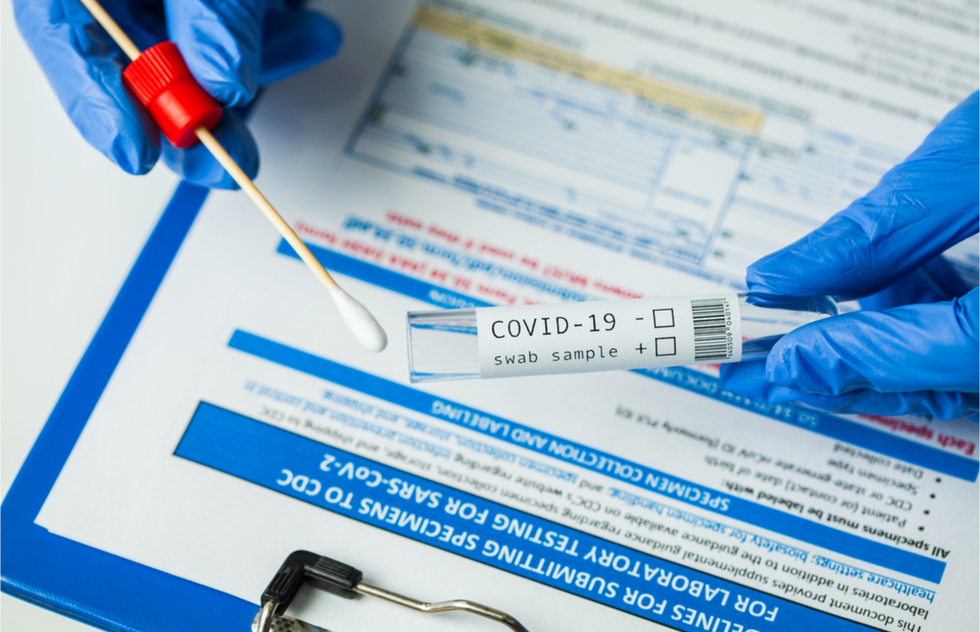If we've learned one thing about Covid-19, it's that not only is the virus constantly mutating, but so are the realities of life during this pandemic era.
We've covered the tests needed to return to the United States as per the Centers for Disease Control's (CDC) regulations, but some problems with those methods have arisen. Now not all of them are equally easy to use.
Some background
In January 2021, the CDC began requiring everyone flying into the United States to show a negative Covid-19 test result. The results must be provided by anyone over the age of 2 within 3 days of departure and must be either from an antigen test or a nucleic acid amplification (NAAT) test. The airlines are responsible for inspecting those results.
In May, the CDC started allowing so-called "take-at-home" tests as well as ones administered in local clinics.
Bringing your own test should be the easiest method, but some serious wrinkles have arisen in recent months. Here's what you should know.
Abbott BinaxNow: To take this maker's test, users must initiate a video call on Zoom through the telehealth company eMed so that a technician can supervise the testing process. It's this observation that makes certifying the test possible.
Early on, the company was promising waits of up to 15 minutes for that crucial video call. Unfortunately, eMed now doesn't have enough staff to schedule the calls promptly.
"We can confirm that we are experiencing unusually high call volumes in great part due to increased infection numbers being reported. We are seeing a massive spike in testing. Our wait times are currently more than 2 hours," Carlos Coreccha, chief communications officer of eMed, the test service provider told The Points Guy.
Coreccha added, "Some users have reported wait times longer than what I just described above depending on internet connectivity and other factors that may not be associated with our service, including device types and individual settings."
The Points Guy noted that it had been hearing from customers experiencing waits of up to four hours—which would be an excruciating delay if you had to catch a flight.
Our advice: If you use Abbott BinaxNow, be sure to set aside time as early as allowable.
Ellume Covid-19: This test requires users to do their nasal swab unsupervised, and then place it into a cartridge which delivers results to an app.
Since there is less of a human-to-human component (users get their directions from the app), there are no delays with Ellume, but many of those who purchased it on Amazon and elsewhere have reported the test is confusing to use.
It has five components, including processing fluid and the Bluetooth-enabled cartridge. Many customers also complained about the need for a Google or Apple account to use the test, something they didn't realize before purchasing.
In addition, Ellume is known to return a significant percentage of false positives. According to an FDA fact sheet for health professionals: "The Ellume Covid-19 Home test would have a PPV of 63% when disease prevalence is relatively high at 5%. This means that 37 out of 100 positive results would be false positives. The Ellume COVID-19 Home test would have a PPV of 25% when disease prevalence is very low at 1%. This means that 75 out of 100 positive results would be false positives.”
Since travelers are not allowed to board flights home should they get a positive result, this percentage is worrisome.
Quidel QuickVue at Home: Well-reviewed for ease of use, this test is only approved for users aged 8 or older (the other two tests can be used on children as young as 2). Unlike the Ellume test, this one is more likely to return a false negative than a false positive, according to the FDA.
One California health provider furnishes this kit along with a video call that validates the result.
One problem with all these tests currently? Supply chain issues. According to NBC News, test kits and in-clinic testing are in short supply in the Southern and Midwestern United States—areas of the country seeing spikes in Covid-19 cases. NBC reports that some local pharmacy chains have sold out of tests, so it may be necessary to order one by mail.
Other mistakes to watch out for
Many travelers simply obtain the results they need by going to local clinics, pharmacies, doctor's offices, or other facilities in the country they are visiting.
But there can sometimes be issues with these results, too.
Antibody tests are not considered acceptable by the CDC for reentry into the United States. So those types of tests should be avoided.
Test results that are not written in English can also be a problem. The CDC pointedly states that it's up to the airline as to whether or not it will accept Covid-19 documents in other languages.
To be on the safe side, make sure your test results are in English.






